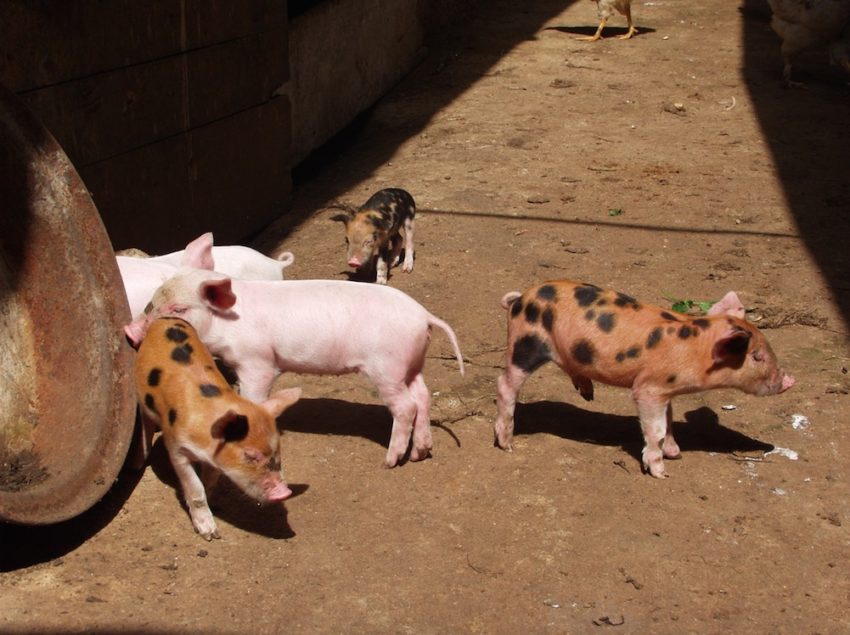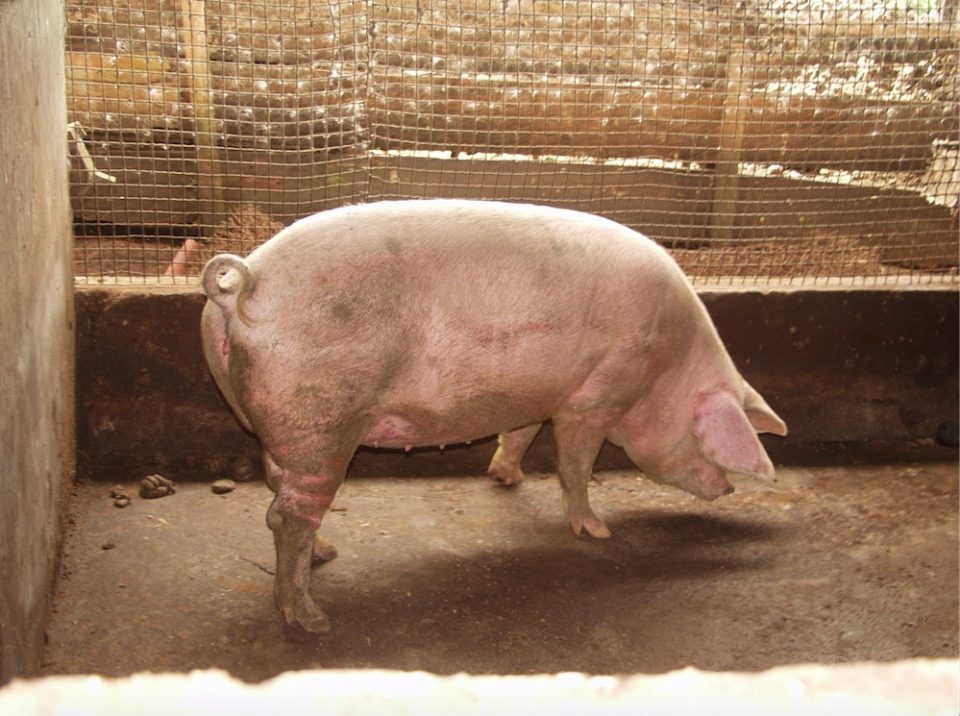Pig production in Cameroon, similar to many other African countries, requires good entrepreneurial skills. The trade is often unorganized, production costs high, and animal diseases common. Success is a real challenge, despite this, pig farmer Jonas Tchenda has managed his production successfully since 1978.
Forget about co-operation, big chain stores pushing margins, and meat packers dominating markets. Tchendas’ graveyard in Nkozoa, a town outside Cameroon’s capital Yaounde, has four hundred pigs, making the graveyard one of the largest farms in Cameroon. Tchendas’ family-run complex covers an area of 200 square meters, enabling him to breed a wide variety of animals: sows, pearls, geese, ducks, chickens and piglets and pigs for fattening.
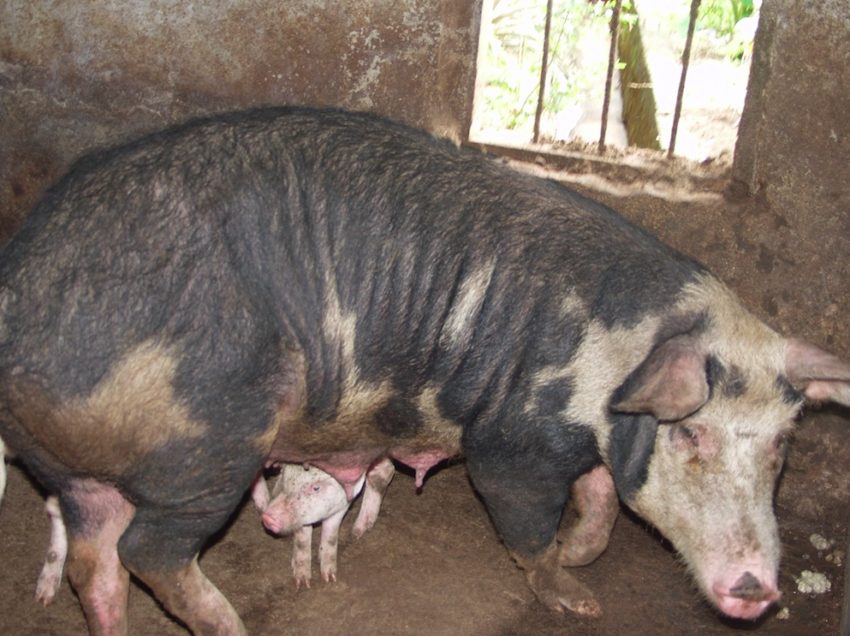
At the age of two, Tchenda sells his animals directly to slaughter, or for feeding. The animals to be slaughtered are sold to merchants or to festivity organisers, in order to avoid the hassle of the pig production’s sticky trading market. Interestingly, Tchenda explains how one valuable and heavy pig can legally bring him 300-400,000 francs (CFA), approximately 450-600 Euros for his income.
Different Challenges in Cameroon’s Pig Production
Cameroon’s development of animal husbandry has encountered many adversities in recent years, including swine flu, reproductive disorders and parasites. In 2014, African swine fever (ASF) strongly shook the pork market, making good meat increasingly rare. In addition to these adversities, production prices are accelerating to higher costs. Also, unorganized management often leads to inbreeding and low fertility risk in the pigs, making the market considerably difficult to navigate. Certified slaughterhouses and processing plants are few, and there is no guarantee the meat will be cared for in the correct way.
“There is no market for pork in Yaounde, every producer organizes sales in a way that suits him best” says Tchenda.
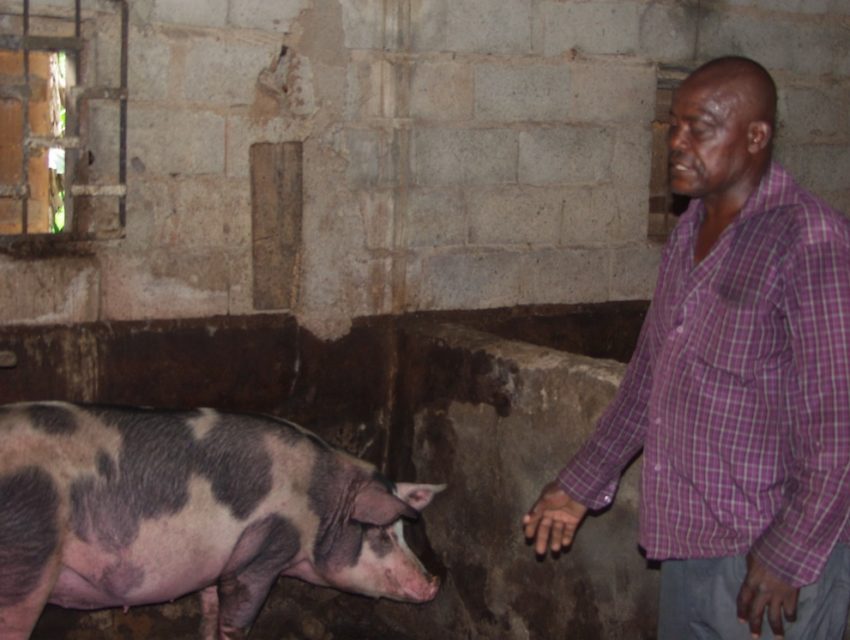
Breeding
Tchenda’s farm complex is divided into several sectors, each one is nine square meters in size. Moreover, each department contains one or two hybrid pigs. The animals are a mixture of species of Large White, Duroc and sometimes local species.
“The local species are more resistant to disease. They also have another benefit, they can be 36 kilograms in six months. A good pig should weigh it” says Tchenda.
He usually uses pigs from his own farm for breeding as a precaution, as many producers are vague in revealing the age of their animals. To maintain the amount of animals on the farm, he castrates the males and the boars with the potential to breed, in order to possess extra good food. He mostly receives the animals’ food from the Institute for Agricultural Research and Development (IRAD) in Nkolbisson, six kilometers east of Yaounde. The rest of the food is grown by himself, or bought from other pig farmers in western Cameroon.
The food consists of a mixture of ingredients: starters from breweries, palm kernel flour, corn, soybeans, peanuts, ground fish, wheat flour, bone flour, shells, palm oil and sugar cake.
“The amount of ingredients varies for different types of pigs. For example, I give half less amount of corn, peanuts and others high fat foods to the breeding pigs against the pigs that are going to slaughter,” says Tchenda.
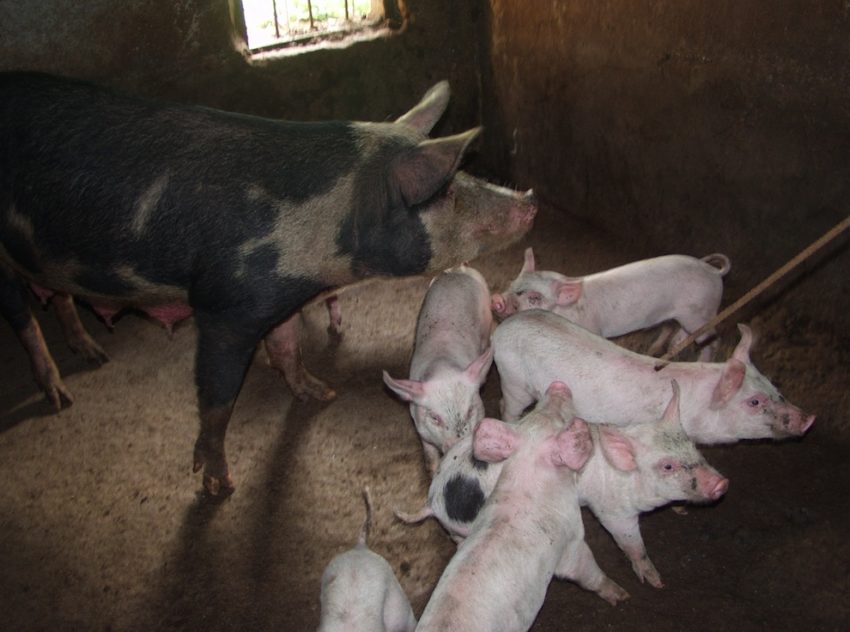
A Better Future
Following the recent Ebola eruptions in several African countries, the so called “bush meat” (meat from wildlife), decreased in popularity and has been banned from many places of sale. Instead, it has become more common to eat pork at home, in restaurants and also in street kitchens.
Consequently, Cameroon Prime Minister Philemon Yang started a project in 2012 to help improve farmers market and animal breeders. As a part of this project, the ministry for animal husbandry has recently imported 77 breeding pigs from France, six of which were pigs and the remaining sows, with the aim to introduce new blood into the pig industry. This is a small progress on a global scale, however the chances of great success for Cameroon and Tchenda are minimal due to the shortcomings in the market.
However, Tchenda has seen his sector change and develop since the seventies, and has still managed to send all his children to school. For now, his farm holds an exemplary reputation within the pig breeding industry, as his success continues.
